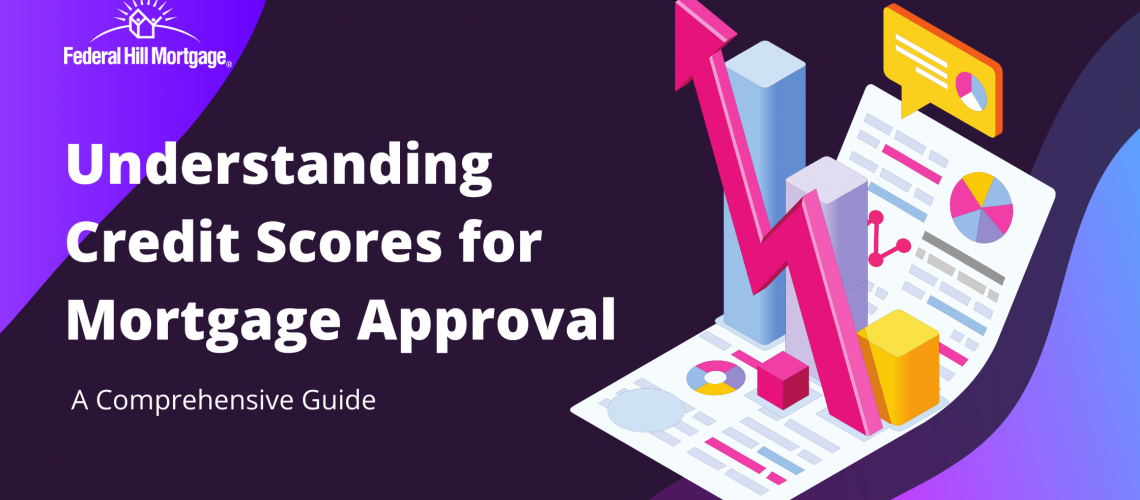Purchasing a home is a monumental milestone, but the journey to homeownership often begins with understanding your credit score. As a crucial factor in mortgage approval, your credit score can significantly influence the terms and rates you qualify for. In this comprehensive guide, we’ll delve into what credit scores are, why they matter for mortgages, and how you can improve your score to secure the best possible loan terms. This guide is designed to help homebuyers across MD, DE, PA, VA, DC, NC, and TX make informed decisions on their mortgage journey.
What is a Credit Score?
A credit score is a numerical representation of your creditworthiness, derived from your credit history. It ranges from 300 to 850, with higher scores indicating better credit health. The three major credit bureaus—Equifax, Experian, and TransUnion—compile your credit report and calculate your score based on factors such as payment history, amounts owed, length of credit history, new credit, and types of credit used.
Why is Your Credit Score Important for Mortgages?
Lenders use your credit score to assess the risk of lending you money. A higher credit score indicates a lower risk, making you more likely to qualify for a mortgage with favorable terms. Conversely, a lower credit score may result in higher interest rates or even denial of your mortgage application.
Credit Score Requirements for Different Mortgage Types
Different mortgage programs have varying credit score requirements. Here’s a breakdown of the most common types:
- Conventional Loans: Typically require a minimum credit score of 620. Higher scores can qualify for better interest rates.
- FHA Loans: Insured by the Federal Housing Administration, these loans require a minimum score of 580 with a 3.5% down payment. Scores as low as 500 may be accepted with a 10% down payment.
- VA Loans: Available to veterans and active military members, VA loans don’t have a minimum credit score requirement, but lenders often prefer a score of 620 or higher.
- USDA Loans: Designed for rural homebuyers, these loans generally require a minimum score of 640.
How to Check Your Credit Score
Before applying for a mortgage, it’s crucial to know your credit score. You can obtain a free annual credit report from each of the three major credit bureaus via AnnualCreditReport.com. Many financial institutions also offer free credit score monitoring services to their customers.
Tips to Improve Your Credit Score
- Pay Your Bills on Time: Your payment history accounts for 35% of your credit score. Consistently paying bills on time is one of the most effective ways to boost your score.
- Reduce Debt: Aim to keep your credit card balances below 30% of your credit limit. Paying down high balances can improve your score.
- Avoid Opening New Credit Accounts: Each application for new credit can cause a small, temporary dip in your score. Avoid opening new accounts unless necessary.
- Dispute Inaccuracies: Review your credit report for errors and dispute any inaccuracies with the credit bureau.
Please consult with a qualified credit counseling agency for credit advice.
Your credit score plays a pivotal role in securing a mortgage and achieving your homeownership dreams. By understanding how your score is calculated and taking proactive steps to improve it, you can position yourself for success. At Federal Hill Mortgage, we’re here to guide you through every step of the homebuying process. Contact Tammy Saul at +1 (800) 551-9198 or email [email protected] for personalized assistance and expert advice.
Frequently Asked Questions
-
What if my credit score is lower than the required minimum?
While it may be more challenging, some lenders may still work with you if other aspects of your financial profile are strong. Consider applying for an FHA loan if your score is below 620.
-
How long does it take to improve a credit score?
Improving your credit score can take time. With consistent effort, such as paying down debt and making timely payments, you might see improvements within a few months to a year.
-
Can I get a mortgage with no credit score?
It’s possible, but you may face higher interest rates or stricter terms. Some lenders offer programs specifically for borrowers with no credit history, evaluating alternative credit data such as rent and utility payments.
Take Control of Your Mortgage Journey Today.
Unlock the Best Mortgage Rates with Expert Guidance!
By focusing on improving your credit score, you’re investing in a brighter financial future and bringing your dream of homeownership within reach. Federal Hill Mortgage is here to guide you every step of the way. Contact Tammy Saul for personalized advice and discover our range of mortgage options tailored for homebuyers in MD, DE, PA, VA, DC, NC, and TX.
Start My Application
